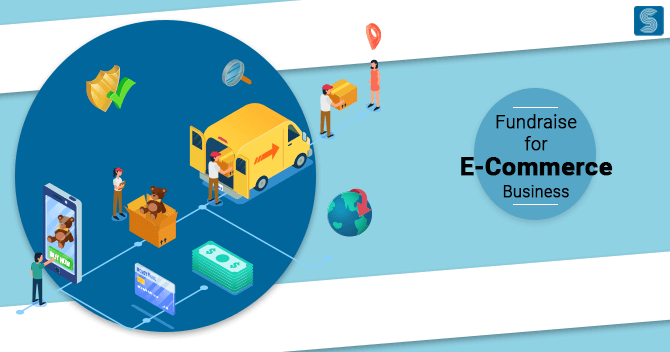Licenses Required to Start an E-Commerce Business in India
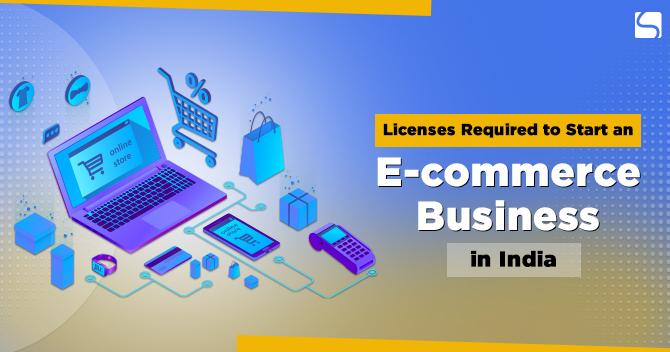
Shivani Jain | Updated: Nov 01, 2020 | Category: E-commerce
In India, the E-commerce industry is witnessing significant growth due to the increasing count of smartphones and internet penetration. The same is boosting due to the rising internet service providers and the commencement of 3G and 4G services as well. In this blog, we will discuss the concept and licenses required to Start an E-commerce Business in India.
Table of Contents
Concept of E-Commerce Business
The term “E-commerce or Electronic Commerce” denotes a business platform on which the transactions are done electronically. Just like a physical market, an e-commerce website deals with the buying and selling of goods or services and transfer of funds as well.
Benefits of E-Commerce Business
The benefits of starting an E-commerce Business in India are as follows:
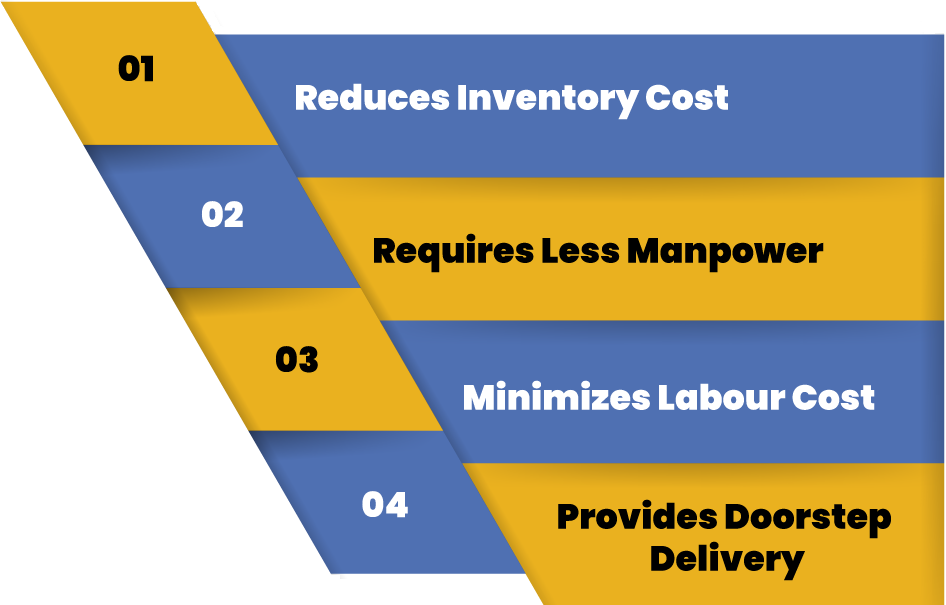
- Reduces Inventory Cost
- Requires Less Manpower
- Minimizes Labour Cost
- Provides Doorstep Delivery
Growth of E-Commerce Business Sector in India
The factors that are involved in the growth of the E-commerce Business Sector in India are as follows:
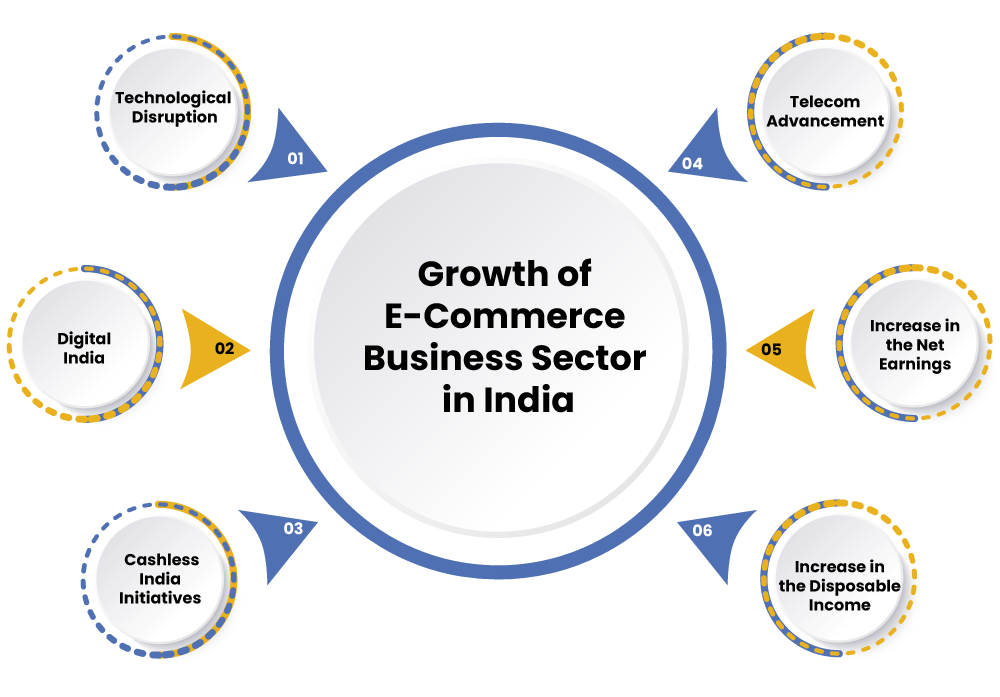
- Technological Disruption as more people have digital devices and smartphones now.
- Digital India
- Cashless India Initiatives are taken by the Government.
- Telecom Advancement in the country as more of 3G, 4G, and Broadband Connectivity at affordable rates.
- Increase in the Net Earnings of the Individuals.
- Increase in the Disposable Income of the Individuals.
Market Trends of 2019 for the Leading Sectors of E-Commerce Industry
The Market Trends of 2019 for the Leading Sectors in the E-commerce Industry can be summarised as:
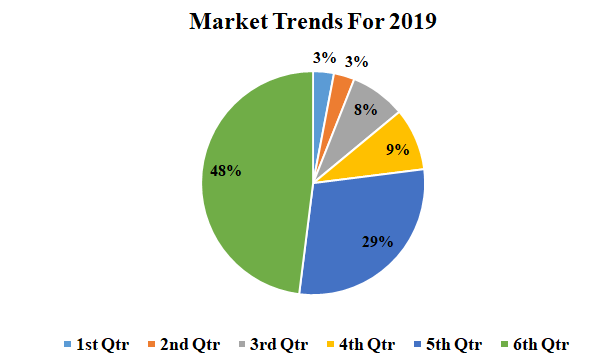
1st Quarter: Miscellaneous
2nd Quarter: Books
3rd Quarter: Beauty and Personal Care
4th Quarter: Home and Furnishing
5th Quarter: Apparels
6th Quarter: Electronics
Statistics on the Growth of the E-Commerce Industry
As per a recent report published by the India Brand Equity Foundation (IBEF) on 21.10.2020, the Indian E-commerce Industry is projected to grow to theUS $200 billion by the end of 2026 from the US $38.5 billion as of 2017. Moreover, the same is expected to cross the US $84 billion by the end of 2021.
Further, the revenue generated from the E-commerce sector is projected to increase to theUS $120 million by the end of 2020 from the US $39 billion in 2017. Also, the same is rising at an annual rate of 51%, which is the highest in the world.
Major Developments in E-Commerce Industry in 2020
The major developments in E-commerce Industry in 2020 are as follows:
August 2020
Reliance Industries (RIL) had acquired 60% shareholding in Netmeds, an online pharmacy store, for Rs 620 crores (the US $84.61 million). Further, this acquisition gave RIL’s retail unit, access into a vertical e-commerce space.
January 2020
The Divine Solitaires had launched its E-commerce platform.
February 2020
Flipkart had set up a “Furniture Experience Center” in Kolkata. It is its first offline presence store in eastern India.
April 2020
The Reliance Industries (RIL) had started its home delivery service of essential items in partnership with some local Kirana stores in Thane, Navi Mumbai, and Kalyan.
Further, in the same month the Swiggy had received an additional US $43 million funding as a part of its ongoing Series I round.
May 2020
PepsiCo India had partnered with Dunzo for some snack food brands that include Kurkure, Lay’s, Doritos and Quaker.
In the same month, the chocolate maker Hershey India entered into a partnership with Swiggy and Dunzo to start their flagship online store to increase their customer reach.
Major Developments in E-Commerce Industry in 2019
The major developments in E-commerce Industry in 2019 are as follows:
August 2019
Amazon had acquired 49% of the shareholding in a unit of Future Group;
Further, in the same month, Reliance Industries had decided to invest Rs 2 lakh crores (the US $2.86 billion) in its Telecom Business to expand its e-commerce and broadband presence and to offer 5G services as well;
September 2019
PhonePe had launched its super-app platform named, “Switch” to offer a one-stop solution for the customers integrating into several other merchants applications;
November 2019
Nykaahad opened its 55th offline store for marking success in both tier II and tier III cities.
Also, Read: The Impact Of New FDI On E-Commerce Retailers And Business
Licenses Required to Start an E-Commerce Business
The licenses required to Start an E-commerce Business in India are as follows:

Business Registration
In the first step, the proposed business owner needs to get his/ her business registered from either of the options of business structure available as follows:
Sole Proprietorship
The term “Sole Proprietorship” denotes a business format that is owned and managed by only one natural person. That means the proprietor or owner is solely responsible and liable for all the business liabilities.
Partnership Firm
The term “Partnership Firm” denotes a business format that needs at least 2 people to start an e-commerce business in India. The partners of this format are personally and severally liable to bear all the firm liabilities.
Private Limited Company
The term “Private Limited Company” denotes a business format that requires a minimum of 2 and a maximum of 200 members to start an e-commerce business in India. However, in this format, the members are personally and severally liable to bear the company’s liabilities.
One Person Company
The concept of One Person Company or OPC is very much similar to the concept of Private Limited Company. However, the main difference between the two is that the former requires only 1 person for its incorporation and the latter needs at least 2 members for its incorporation.
Limited Liability Partnership
LLP or Limited Liability Partnership is a blend structure of Private Limited Company and Partnership Firm. It provides both flexibility in Internal Management and Limited Liability to its partners.
Goods and Service Tax
If an individual wants to start an e-commerce business anywhere in India, besides the North-Eastern States, then he/ she needs to apply for GST Registration when the annual turnover exceeds the threshold of Rs 20 lakhs.
Shop and Establishment Act
If the owner wants to access the mode of Payment Gateway, then he/she needs to acquire the Shop and Establishment License.
Trademark Registration
The term Trademarks Registration signifies a symbolic representation that aims to protect and guard the domain name, brand name, slogan, logo, etc. Further, it is a must requirement for anyone who wants to start an e-commerce business in India.
Also, this symbolic representation restricts everyone from using a name, slogan, logo, etc, without obtaining prior approval or permission from the Trademark Holder.
Documents Required to Start an E-commerce Business
The website documents required to start an E-commerce Business in India are as follows:
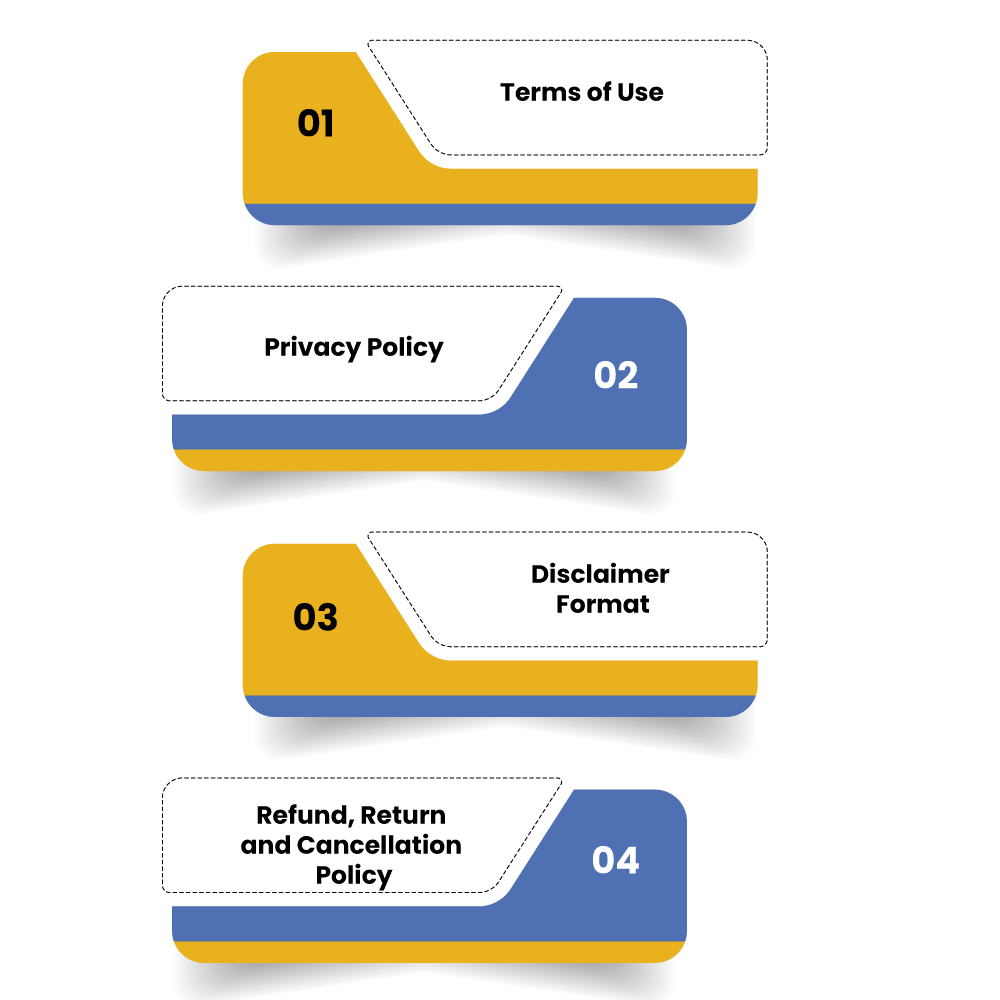
Terms of Use
The Terms of Use Document includes the mission and vision of the e-commerce company.
Privacy Policy
The manner in which the information and details of the user, visitor, or client will be managed by the company is covered under the Privacy Policy document.
Disclaimer Format
A disclaimer format acts as a shield for the business as it frees it from any liability arising out of the content posted by any user or the third party.
Refund, Return and Cancellation Policy
All the conditions relating to the product return, order return, order cancellations by the customer are covered under the Refund, Return, and Cancellation Policy.
Additional Contracts Required to Start an E-commerce Business
The Additional Contracts required to start an E-commerce Business in India are as follows:
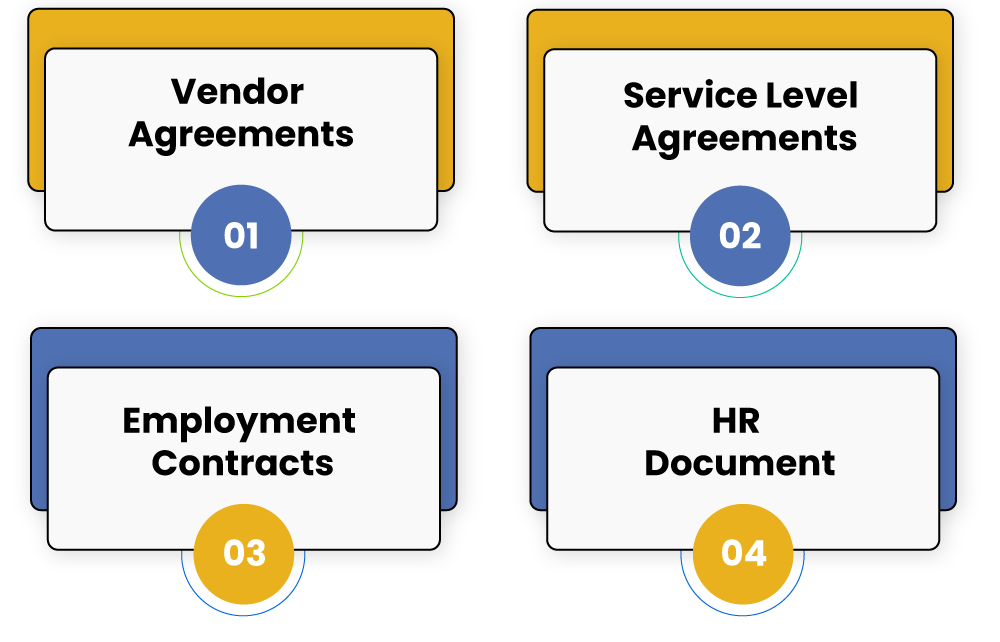
Vendor Agreements
The term “Vendor Agreement” denotes an agreement signed between the e-commerce company and its product vendors. Further, this document lays down the conditions concerning to the supply of goods, quality standards, and prices.
Service Level Agreements
The term Service Level Agreements denotes an agreement that defines the terms and conditions concerning to any business services benefited by the e-commerce retail store, such as internet services, logistics, etc.
Employment Contracts
The term “Employment Contract” denotes an agreement that lays down the terms and conditions of employment for both the staff and employees.
HR Document
The term “HR Document” denotes a document that includes all the details regarding the following:
- HR policies
- Procedures concerning Code of Conduct
- Promotions
- Complaints
- Appraisals
Conclusion
In a nutshell, the fastest, easiest, and most convenient model to grow a business in India is to start an e-commerce business. Also, it is a relaxed way to reach a global platform.
Further, this business platform aims to reduce inventory cost, require less manpower, and minimize labor costs, and is the most convenient and simplest option for the customers to get their products and services at their doorsteps and fingertips.
Also, Read: Step by Step Guide to Mergers and Acquisition in E-commerce














